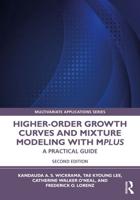Publisher's Synopsis
Designing Experiments and Analyzing Data: A Model Comparison Perspective (3rd edition) offers an integrative conceptual framework for understanding experimental design and data analysis. Maxwell, Delaney, and Kelley first apply fundamental principles to simple experimental designs followed by an application of the same principles to more complicated designs. Their integrative conceptual framework better prepares readers to understand the logic behind a general strategy of data analysis that is appropriate for a wide variety of designs, which allows for the introduction of more complex topics that are generally omitted from other books. Numerous pedagogical features further facilitate understanding: examples of published research demonstrate the applicability of each chapter's content; flowcharts assist in choosing the most appropriate procedure; end-of-chapter lists of important formulas highlight key ideas and assist readers in locating the initial presentation of equations; useful programming code and tips are provided throughout the book and in associated resources available online, and extensive sets of exercises help develop a deeper understanding of the subject. Detailed solutions for some of the exercises and realistic data sets are included on the website (DesigningExperiments.com). The pedagogical approach used throughout the book enables readers to gain an overview of experimental design, from conceptualization of the research question to analysis of the data. The book and its companion website with web apps, tutorials, and detailed code are ideal for students and researchers seeking the optimal way to design their studies and analyze the resulting data.









